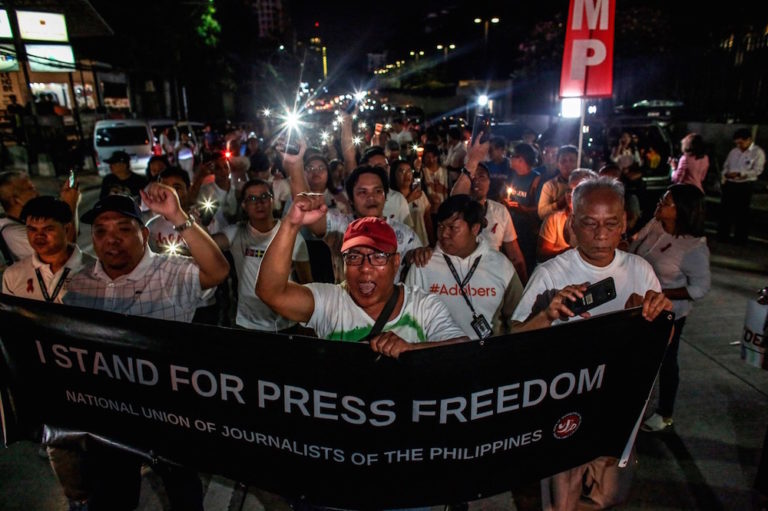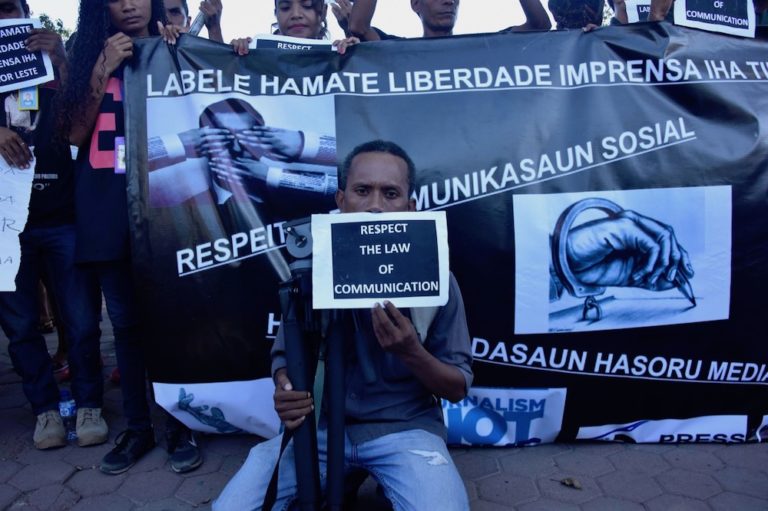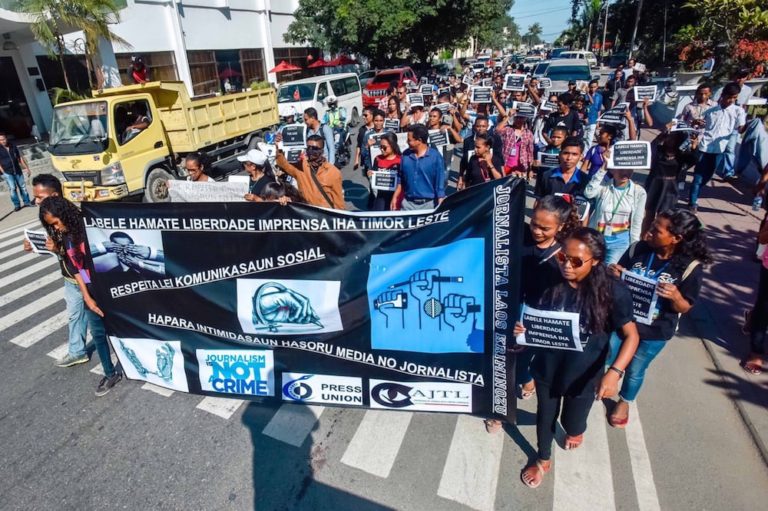(SEAPA/IFEX) - Regional press freedom groups call on TL's parliament to reconsider passage of laws that threaten free expression.
(SEAPA/IFEX) – The following is a 9 April 2009 statement by SEAPA and its regional partners:
Regional press freedom groups alarmed by Timor Leste’s draft media laws; call on TL’s parliament to reconsider passage of laws that threaten free expression
9 April 2009
We, members and partners of the Southeast Asian Press Alliance (SEAPA), are deeply disturbed by the ongoing consideration of draft media laws that will severely damage the environment for press freedom and free expression in Timor Leste.
As independent media and press freedom advocates from Indonesia, Malaysia, the Philippines, Cambodia, Thailand, and exiled Burmese media, we concur with Mr. Virgilio Guterres, president of the Timor Lorosa’e Journalists’ Association (TLJA), a SEAPA partner, when he decries the proposed laws as threatening to press freedom and media independence in the young Southeast Asian nation.
The proposed media laws cover a wide range of matters from access to information to community broadcasting, but are headlined by a draft media law and media council law. These bills, dismayingly drafted by a consultant from the United Nations Development Program (UNDP) on behalf of the government of Timor Leste, represent a stumbling block to the young nation’s path towards democracy and economic stability.
Among the controversial provisions of the bills are proposals to effectively legislate ethics, license journalists, establish a parliament-appointed media council, and slap hefty fines on reporters violating vague provisions of any of the above-mentioned proposals.
The proposed media council can fine journalists between US$500-US$2,500 and up to US$10,000 for newspapers. The amount of fines will have a serious chilling effect in what is, by any account, one of the poorest countries in the world.
Meanwhile, it is proposed that the members of a national media council – the same body that will have the authority to issue and revoke licenses to journalists – will be appointed by parliament. This goes against the principles of independence and self-regulation that are the hallmarks of genuine and effective media councils in democracies worldwide. Adding insult and absurdity to the threat, the proposed media council will be structured to derive its revenue from fines imposed on journalists; the conflict of interest is plain to see, and all the more dangerous, as the council will have a built-in interest to see journalists penalized.
On top of all these concerns, the vague wording of the draft laws creates an environment of uncertainty that will further lead to self-censorship among journalists. To be fair, the laws also carry provisions to encourage public access to information and general transparency in government, but the climate that will hang over the country’s journalists will be so stifling as to negate any of the positive, even sincere, aims behind the proposed laws.
To read the full statement, see: http://www.seapabkk.org/
Updates the case on East Timor’s draft media laws:
http://ifex.org/en/content/view/full/101817


